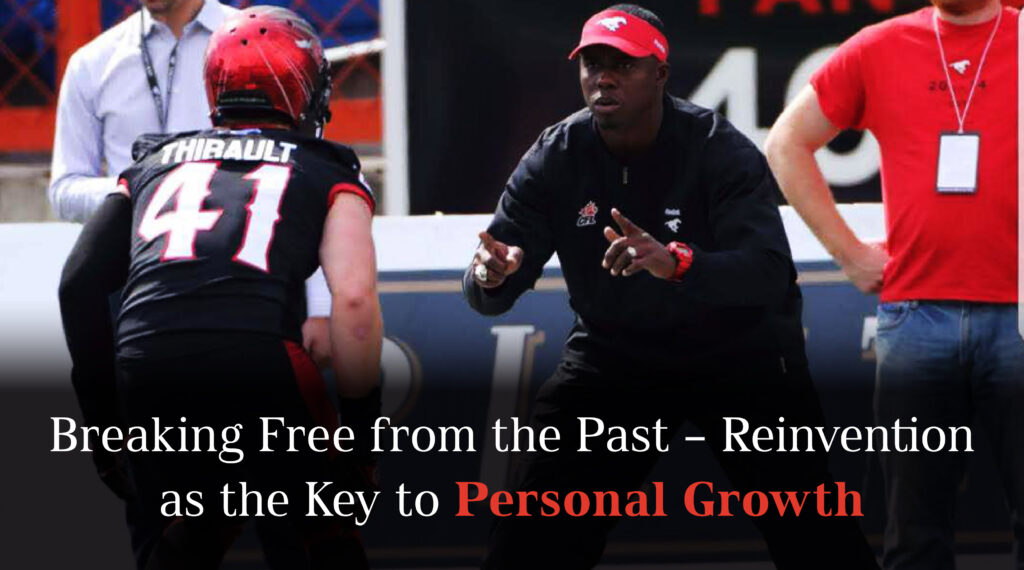In today’s fast-paced world, where success is often measured by material achievements or public recognition, the pursuit of a purpose-driven life remains a timeless endeavor. For individuals seeking a meaningful existence that transcends fleeting accomplishments, three foundational elements emerge as indispensable: faith, family, and football. These cornerstones, as exemplified by the remarkable career and philosophy of Kahlil Carter, offer a framework for resilience, balance, and lasting impact. Carter, a seasoned football coach and former professional athlete, has demonstrated through his journey that integrating these principles fosters not only personal growth but also professional excellence and societal contribution. This article explores why faith, family, and football are essential to living with purpose, drawing on Carter’s experiences to illustrate their transformative power.
Faith
Faith serves as the bedrock of a purpose-driven life, providing individuals with an unshakable foundation to navigate challenges and maintain focus on their higher calling. For Kahlil Carter, faith is not merely a personal belief but a guiding force that has shaped his decisions both on and off the field. As he articulates in his book The iN Crowd: Life, Legacy, Leadership, Carter views football as “God’s game,” a perspective that underscores his belief in divine purpose woven into his athletic and coaching career. This spiritual conviction has been a source of strength, enabling him to overcome adversities such as growing up in gang-ridden neighborhoods, confronting racism, and managing personal losses.
Professionally, faith equips individuals with resilience—a critical attribute in high-stakes environments like sports or corporate leadership. Carter’s tenure as Defensive Coordinator for the Montreal Alouettes and Secondary Coach for the Calgary Stampeders in the Canadian Football League (CFL) reflects a career marked by adaptability and perseverance. His ability to lead teams to back-to-back championships in 2011 and 2012, and to mentor 21 All-League players over 12 years, speaks to a mindset fortified by faith. In a corporate context, this translates to the capacity to endure setbacks, maintain ethical standards, and inspire teams toward a shared vision—qualities that distinguish exceptional leaders.
Moreover, faith provides clarity of purpose, aligning actions with values that extend beyond immediate gains. Carter’s commitment to “Serving a Wonderful and Amazing God” (part of his SWAAG motto) reflects a dedication to living authentically and contributing to others’ growth. For professionals and individuals alike, this alignment fosters a sense of fulfillment that material success alone cannot deliver, making faith an essential cornerstone of a purpose-driven life.
Family
If faith provides the compass for a purpose-driven life, family serves as the anchor, offering stability and unconditional support amid life’s turbulence. Kahlil Carter’s narrative underscores the pivotal role family plays in shaping character and sustaining ambition. In The iN Crowd, he dedicates heartfelt passages to his mother, Linda, whom he describes as his hero, and credits her sacrifices and resilience as a single parent for instilling in him the values of hard work and determination. Similarly, his reflections on his stepfather, Thom, and his brothers highlight a familial network that provided both practical and emotional support during formative years.
For Carter, family extends beyond biological ties to encompass the relationships he has cultivated with his wife, Courtney, and his four daughters—Briana, Brooklyn, Mya, and Belize. His decision to prioritize family over a demanding coaching career, as evidenced by his move to Des Moines, Iowa, illustrates a deliberate shift toward being present for his children’s growth. This choice reflects a broader truth: family offers a sanctuary where individuals can recharge, reflect, and realign their priorities. In a professional setting, this stability translates to enhanced focus and emotional intelligence—attributes that elevate leadership effectiveness and team cohesion.
Carter’s emphasis on family also underscores its role in accountability. His conversations with his brother Aaron and daughter about aligning their actions with the family’s values mirror the corporate principle of brand integrity. Just as a company must ensure its representatives uphold its ethos, Carter views his family as an extension of his personal and professional identity. This interconnectedness reinforces why family is indispensable: it provides a support system that not only nurtures individual success but also amplifies collective impact, a lesson applicable to both personal and organizational growth.
Football
Football, as the third cornerstone, serves as a crucible where discipline, teamwork, and leadership are forged—skills that resonate far beyond the gridiron. Kahlil Carter’s illustrious career as a player and coach exemplifies how football cultivates qualities essential to a purpose-driven life. From his days as a standout cornerback with the Buffalo Bills (NFL), Scotland Claymores (NFL Europe), and Toronto Argonauts (CFL), to his coaching stints leading teams to multiple championship appearances, Carter has harnessed the sport’s demands to build character and influence others.
Discipline is a hallmark of football that Carter embodies and imparts. His recognition as the Arena Football League’s Defensive Player of the Year in 2003 and his inclusion in the 2007 All-Anniversary Team reflect a relentless work ethic honed through years of practice and preparation. In his coaching philosophy, Carter emphasizes “Students Working toward Academic and Athletic Greatness” (SWAAG), highlighting the dual discipline required to excel in both domains. For professionals, this translates to the ability to manage time, prioritize tasks, and maintain consistency—skills critical to achieving long-term objectives.
Football also fosters leadership through its emphasis on teamwork and accountability. Carter’s ability to mentor 21 All-League players and earn praise from peers like Gary Swenson, who lauded his “uncommon ability to teach the game and relate to players,” demonstrates his capacity to inspire and elevate others. His approach to game planning and in-game adjustments, described as that of a “football savant,” mirrors the strategic thinking required in corporate leadership. Whether rallying a team to a championship or guiding a young athlete through life’s challenges, Carter’s football-rooted leadership underscores why the sport is a powerful vehicle for purpose.
Furthermore, football teaches adaptability—a vital trait in an ever-evolving world. Carter’s journey from player to coach across various leagues and levels, including high school, collegiate, and professional settings, showcases his ability to pivot and thrive in diverse contexts. This adaptability is a cornerstone of modern success, enabling individuals to navigate career transitions, market shifts, or personal reinventions with confidence and grace.
The Synergy of Faith Family and Football
While faith, family, and football each stand as powerful pillars, their true strength lies in their synergy. Kahlil Carter’s life illustrates how these elements interweave to create a robust framework for purpose. His faith sustained him through personal trials, such as the loss of his father and grandfather, while his family provided the emotional ballast to pursue his ambitions. Football, in turn, offered a platform to channel his resilience and leadership, amplifying his impact on players and communities.
This triad is not exclusive to athletes; it offers universal lessons for professionals seeking meaning in their work. Faith instills ethical grounding and perseverance, family ensures a support network that mitigates burnout, and football—or any disciplined pursuit—hones skills that drive achievement. Together, they cultivate a holistic approach to life, balancing personal well-being with professional excellence.
Carter’s SWAAG philosophy encapsulates this synergy: faith fuels the spirit, family anchors the heart, and football sharpens the mind and body. His move to Des Moines to serve his family while continuing to influence through faith-based initiatives, like his youth camps, reflects a purposeful integration of these cornerstones. For organizations, this model suggests that fostering employees’ spiritual resilience, familial stability, and professional discipline can yield a workforce that is both productive and fulfilled.
Conclusion
Kahlil Carter’s journey—from a gang-influenced youth to a celebrated coach and family man—demonstrates why faith, family, and football are essential to a purpose-driven life. These cornerstones provide the resilience to overcome adversity, the stability to pursue goals, and the discipline to leave a lasting legacy. As Carter notes in The iN Crowd, living an “iNvincible life” means honoring God and serving others to the best of one’s ability—a mission rooted in these three pillars. For individuals and organizations alike, embracing faith, family, and football—or their equivalents—offers a roadmap to meaningful success. Carter’s story is a testament to their power, proving that a life built on these foundations is not only purpose-driven but also profoundly impactful. As we navigate our own paths, let us consider how these cornerstones can guide us toward excellence, just as they have for Kahlil Carter.


